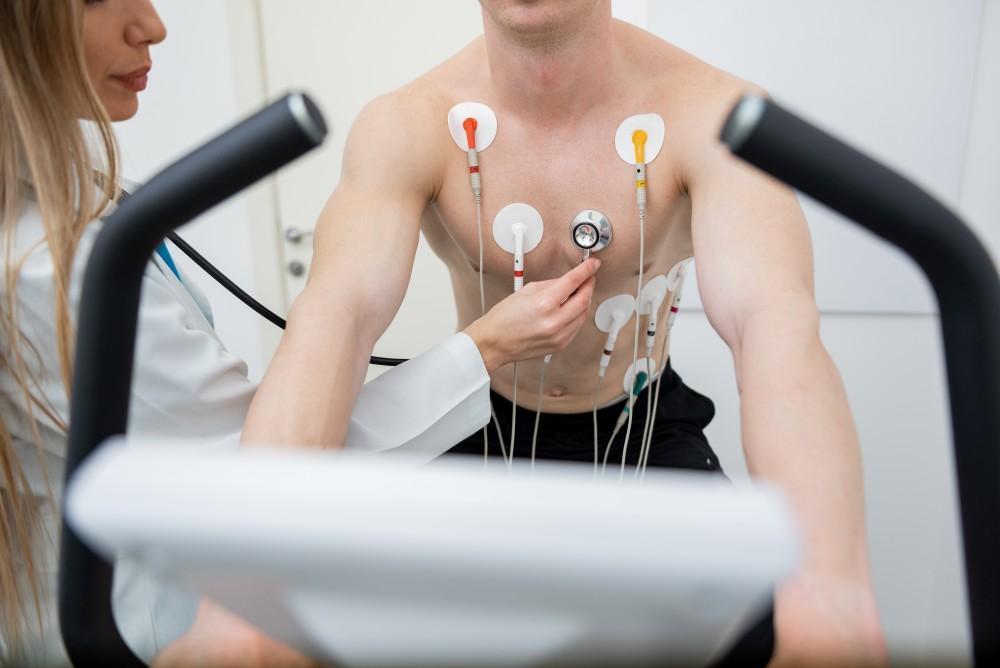
What Is a Stress Test?

You might benefit from an electrocardiogram (EKG) and a stress test if you have symptoms of heart disease or if you have a history of heart disease. Dr. Henock Saint-Jacques can use the results of your stress test to see if your symptoms (such as shortness of breath) are related to your heart or to see if heart disease treatments you have already received are working.
If you’re scheduled for a stress test, you might have questions about this test. In this blog, Dr. Saint-Jacques answers your questions, including what a stress test is, how it works, and how you can prepare for one.
Stress test 101
A stress test goes by many names: exercise test, treadmill test, and stress test all refer to the same test. The goal of this test is to see how your heart handles physical stress. Your body must work hard during this test, which forces your heart to pump more blood. If your arteries (which supply oxygen-rich blood to your heart) are not performing as well as they should, this test will reveal that information.
Preparing for your stress test
You can prepare for your stress test by following any pretest instructions. This may include avoiding food for 2-4 hours before the test, avoiding smoking, and stopping certain medications. Don’t stop or alter your medication schedule unless directly instructed to do so.
You should also wear loose, comfortable athletic clothing and supportive gym shoes.
During your test
Before the test begins, wires (electrodes) will be attached to your chest, arms, and shoulders. This is painless. The wires are connected to the electrocardiogram machine.
During the test, you’ll walk on a treadmill or ride on a stationary bike. Regardless of whether your test is on the treadmill or the bike, you can expect the workout to get more strenuous as the time passes. Once your heart rate reaches the target set by Dr. Saint-Jacques, you’ll lie down. We then monitor your heart rate, your breathing and respiration rate, your blood pressure, and how fatigued you feel. You may also breathe into a tube that helps measure your breathing.
The test doesn’t hurt and it’s no more stressful than walking or jogging up a hill. Rest assured, you can stop the test when you need to, and Dr. Saint-Jacques will monitor you carefully throughout the test. You may stop when your heart reaches the target level or if you experience symptoms such as dizziness, chest pain, or usually high or low blood pressure.
Note: If you can’t safely exercise, you may be an ideal candidate for a nuclear stress test. This test still monitors how much physical stress your heart can handle, but it relies on medication (not exercise on a treadmill) to check the function of your heart.
After your test
The results of this test can:
- Show how much workload your heart can handle (and what exercises are right for you)
- Highlight if you have an irregular heartbeat
- Reveal if your symptoms (such as shortness of breath or chest pain) are related to your heart
- If treatments you have already received are working (or not)
- What type of exercise level is safe for you
- If you need additional testing or procedures (such as an angiogram)
- Help determine when or if advanced treatments (such as heart transplants) are needed
- Help determine when heart surgery is needed
If your stress test results are used to diagnose heart problems such as ischemic heart disease or heart failure, Dr. Saint-Jacques can guide you with your next steps.
To schedule a stress test or to address any heart concerns, call our East Harlem, New York, office to set up an appointment. You can always visit our website to make an appointment.
You Might Also Enjoy...


Is It Possible to Lower My Blood Pressure Naturally or Do I Need Medicine?

What You Can Do Now to Prevent a Stroke Later in Life

3 Noninvasive Tests That Measure the Health of Your Heart

What Can I Do About My Varicose Veins?


